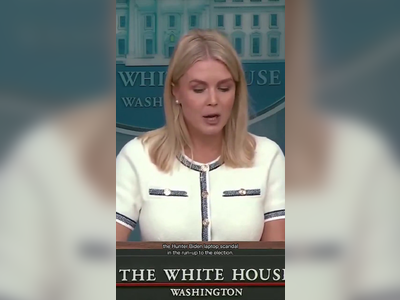New Legislation Addresses Fentanyl Crisis Amid Alarming Statistics
The bipartisan Fentanyl Act aims to strengthen penalties against trafficking while highlighting the growing impact of fentanyl abuse among young Americans.
On July 16, a significant legislative milestone was reached in the United States with the passage of the Fentanyl Act, reflecting an urgent response to the alarming rise in fentanyl-related fatalities.
This legislation aims to categorize fentanyl as a Schedule I controlled substance, which will enhance the criminalization and prosecution of individuals involved in the trafficking of this potent synthetic opioid.
Fentanyl has emerged as the leading cause of death among Americans aged 15 to 48 over the past four years, demonstrating a stark shift in public health challenges.
The Centers for Disease Control and Prevention (CDC) reports that the opioid crisis has escalated, with a growing number of overdoses being attributed to various forms of fentanyl.
Particularly noteworthy is the statistic that children under the age of 14 represent the fastest-growing demographic in fatalities linked to this substance.
In response to this crisis, advocates, including families affected by fentanyl-related losses, have called for more robust government action.
Recently, a parent, identified as an 'angel parent,' shared the tragic story of their child, Weston, who succumbed to fentanyl after a single pill was ingested under peer pressure.
The recent legislative efforts have garnered bipartisan support, indicating a collective recognition of the fentanyl crisis's severity.
Key figures, including members of the Justice Department, Homeland Security, and Treasury, have been mobilized to address the trafficking and distribution channels of fentanyl.
Measures include tightening border security, imposing tariffs on precursor chemicals, and sanctioning cartels involved in drug trafficking.
This legislation comes at a time when many Americans have expressed feeling neglected regarding the opioid crisis, and there have been calls for comprehensive strategies to combat this epidemic.
The Fentanyl Act not only establishes harsher penalties but also aims to raise awareness about the dangers associated with fentanyl use, particularly among younger populations.
The newly signed Act represents a critical measure in the broader fight against drug abuse in the United States, as advocates continue to seek solutions to protect families and communities from the devastating effects of this crisis.
This legislation aims to categorize fentanyl as a Schedule I controlled substance, which will enhance the criminalization and prosecution of individuals involved in the trafficking of this potent synthetic opioid.
Fentanyl has emerged as the leading cause of death among Americans aged 15 to 48 over the past four years, demonstrating a stark shift in public health challenges.
The Centers for Disease Control and Prevention (CDC) reports that the opioid crisis has escalated, with a growing number of overdoses being attributed to various forms of fentanyl.
Particularly noteworthy is the statistic that children under the age of 14 represent the fastest-growing demographic in fatalities linked to this substance.
In response to this crisis, advocates, including families affected by fentanyl-related losses, have called for more robust government action.
Recently, a parent, identified as an 'angel parent,' shared the tragic story of their child, Weston, who succumbed to fentanyl after a single pill was ingested under peer pressure.
The recent legislative efforts have garnered bipartisan support, indicating a collective recognition of the fentanyl crisis's severity.
Key figures, including members of the Justice Department, Homeland Security, and Treasury, have been mobilized to address the trafficking and distribution channels of fentanyl.
Measures include tightening border security, imposing tariffs on precursor chemicals, and sanctioning cartels involved in drug trafficking.
This legislation comes at a time when many Americans have expressed feeling neglected regarding the opioid crisis, and there have been calls for comprehensive strategies to combat this epidemic.
The Fentanyl Act not only establishes harsher penalties but also aims to raise awareness about the dangers associated with fentanyl use, particularly among younger populations.
The newly signed Act represents a critical measure in the broader fight against drug abuse in the United States, as advocates continue to seek solutions to protect families and communities from the devastating effects of this crisis.











